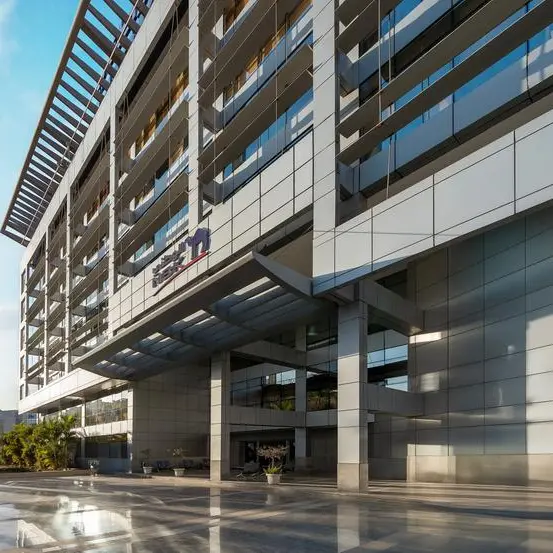Riyadh : The UAE, represented by the General Authority for Regulating the Telecommunications Sector (aka TRA), participated in the 23rd session of the Council of Arab Ministers of Communications and Information hosted by the Saudi capital Riyadh on December 17-18, under the theme “An Arab ambition for a Digital Generation”, in the presence of a number of telecommunications and information ministers from Arab countries. The UAE delegation was headed by H.E. Hamad Obaid Al Mansouri, TRA Director General, and included a number of TRA managers and staff.
The meeting discussed the future of joint Arab action in ICT, its global developments and implications for the Arab world in the domains of economy, health, education and others. The meeting also discussed the proposal of the joint Arab Digital Declaration “Building a prosperous and sustainable Arab digital society”, which reflects the wish of Arab countries to work on building a prosperous, sustainable and harmonious Arab digital society where individuals can grow towards development; a society in which individuals, communities and nations can unlock their full potential to advance their sustainable development and improve their quality of life, based on the purposes and principles of the Arab League Charter.
In his speech during the meeting, H.E. Hamad Obaid Al Mansouri stressed that the importance of such event stems from the importance of the ICT sector, as every development witnessed in the world has become correlated to how advanced the telecommunications infrastructure is, adding: "I hope that the Arab Digital Declaration, in letter and spirit, will be the title of a new Arab era, an era in which potentials of Arab youth will be unleashed from the ocean to the Gulf, and in which their creative ideas will sprout to contribute to making a bright sustainable digital future.”
He added: "We have 100 million youth in the Arab world aged between 15 to 29. These men and women have immense potential. Either we leave them exposed to darkness and obscurantism, or we take their hands into enlightenment and development by investing their energy in moving forward and making the future. This announcement is the junction between the two paths. If we are to succeed in making it part of our children's thinking and interests, we will have made the right choice, and this is what we all wish for.“
The Arab Digital Declaration included five common Arab principles for building a prosperous and sustainable Arab digital society, with the first principle ensuring a digital economy as a new way to promote community growth and stability. Overcoming any obstacle to maximize benefits of such economy. In addition to reflecting on the Fourth Industrial Revolution (4IR), being the greatest economic multiplier, and the largest social equivalent.
As for the second principle, it provides for reliance on youth as a drive for progress and construction in the digital world, as they are the means to tackle future challenges and the cyberspace, and the key to transforming the Arab digital world into an icon of the world. The third principle stated the importance of Arab data as a fundamental factor for digital development and future leadership, and as a key enabler for the 4IR and digital economy.
The fourth principle of the Declaration stipulates activating innovation, since it is the best way to realize aspirations. Striving to support innovators, creators and leaders by providing a nurturing environment to encourage innovation and entrepreneurship in all sectors. Lastly, the fifth principle mentions the importance of the union of Arab forces, as military blocs and groupings are of utmost necessity. Concerted efforts and stances are required to make the Arab region a regional and global power in the digital world.
-End-
About the General Authority for Regulating the Telecommunications Sector
The General Authority for Regulating the Telecommunications Sector was established in the United Arab Emirates pursuant to Federal Law No. 3 of 2003, with its role structured around two key areas, namely: Organizing the telecommunications sector, empowering government entities in m-Transformation, and enhancing cybersecurity to safeguard society and contribute to promoting happiness and quality of life.
In the area of regulation, the role of the TRA is to ensure the provision of excellent telecommunications services, develop the sector, protect the interests of parties, implement relevant policy and regulatory frameworks, develop human resources, promote R&D, ensuring the UAE has a leading regional and global position in the telecommunications sector.
In the area of empowerment, the TRA is responsible for overseeing the UAE Federal e-Government under Law No. 3 of 2011. Since then, the TRA has been responsible for the digital transformation of the federal government through two strategic objectives: enhancing the smart lifestyle, and leadership in the smart technological infrastructure in the UAE.
For more information, visit: www.tra.gov.ae
© Press Release 2019Disclaimer: The contents of this press release was provided from an external third party provider. This website is not responsible for, and does not control, such external content. This content is provided on an “as is” and “as available” basis and has not been edited in any way. Neither this website nor our affiliates guarantee the accuracy of or endorse the views or opinions expressed in this press release.
The press release is provided for informational purposes only. The content does not provide tax, legal or investment advice or opinion regarding the suitability, value or profitability of any particular security, portfolio or investment strategy. Neither this website nor our affiliates shall be liable for any errors or inaccuracies in the content, or for any actions taken by you in reliance thereon. You expressly agree that your use of the information within this article is at your sole risk.
To the fullest extent permitted by applicable law, this website, its parent company, its subsidiaries, its affiliates and the respective shareholders, directors, officers, employees, agents, advertisers, content providers and licensors will not be liable (jointly or severally) to you for any direct, indirect, consequential, special, incidental, punitive or exemplary damages, including without limitation, lost profits, lost savings and lost revenues, whether in negligence, tort, contract or any other theory of liability, even if the parties have been advised of the possibility or could have foreseen any such damages.



















